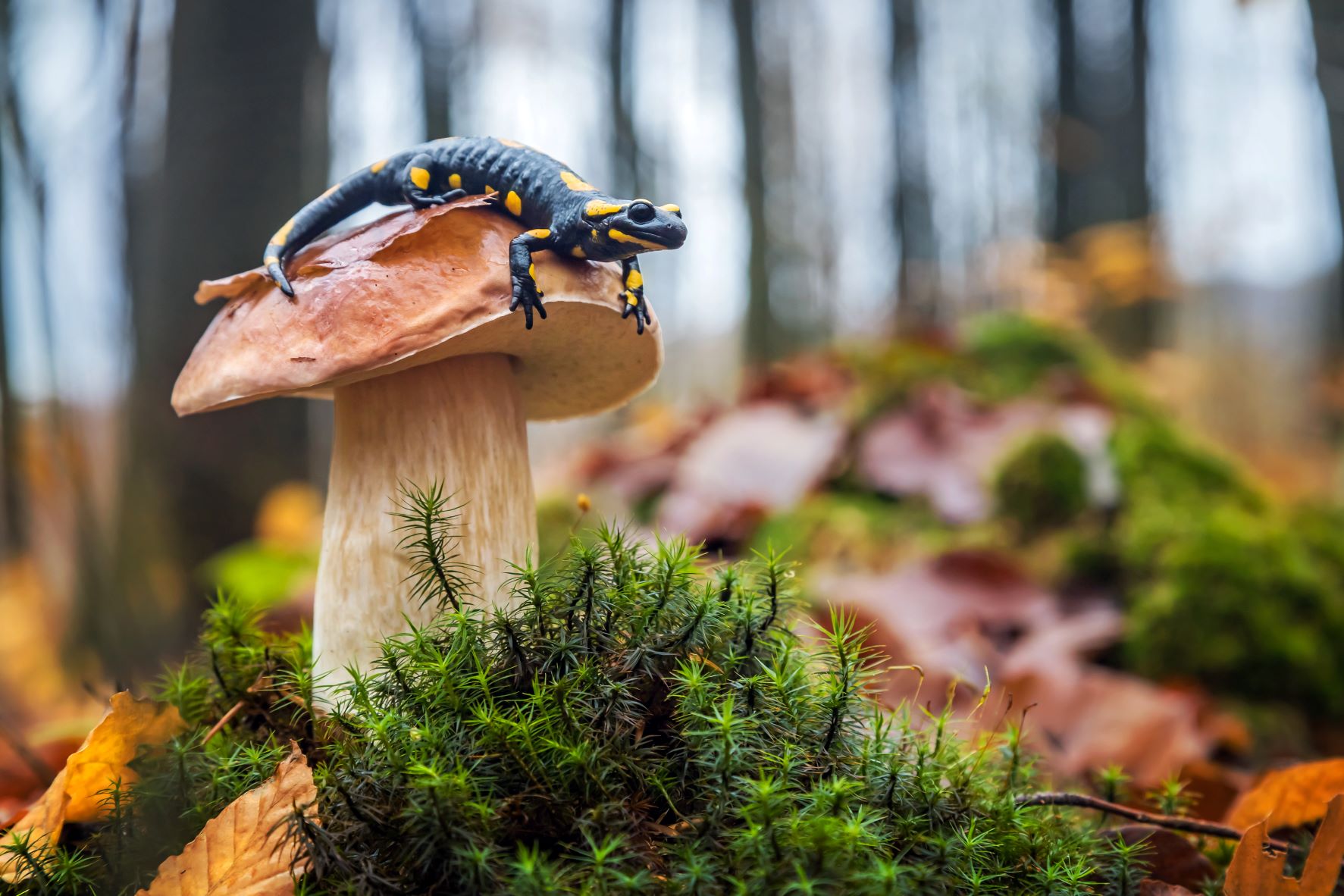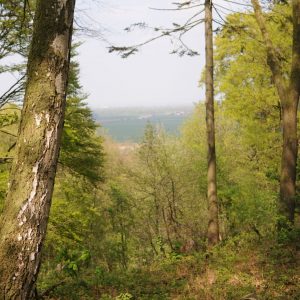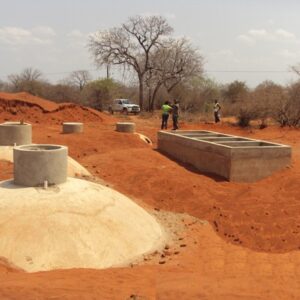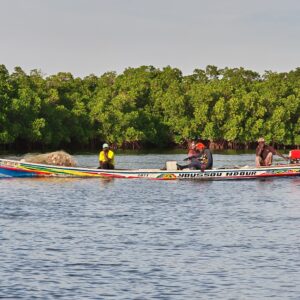Biodiversity recovery

Biodiversity recovery
A resilient ecosystem
The diversity of plants and animals and even fungi is extremely important for life on earth. All species together form an ecosystem, in which each species has a specific role and place in the food chain. This variety of species, the biodiversity, makes us more resistant to all kinds of external influences, such as diseases, pests and extreme weather conditions.
The great diversity of species, both plants and animals, creates biotopes or niches that locally create the right conditions for other species to survive. For example, during a heat wave, where shade from tall trees and moist soil increase the chances of survival. When there are only a few shrubs of the same species, which can also not withstand drought, the temperature rises much higher. As a result, some species do not survive, including those shrubs themselves. With a single heat wave, such an ecosystem is wiped out. That is why a high biodiversity ensures a higher resilience of the entire ecosystem.
Vulnerable
It is clear that biodiversity is not doing well. The Global Living Planet Index (2022) shows an average decline of 69% in monitored populations of mammals, birds, amphibians, reptiles and fish between 1970 and 2016. The Netherlands tops the list of countries where biodiversity is declining. We are not even achieving 40% of the Natura 2000 targets that we have set ourselves. Fragmentation, desiccation and an excess of nitrogen deposition are partly the cause of this.
Ecosystem Services
Biodiversity also affects us in our daily lives. A biodiverse nature offers us services that we directly benefit from: ecosystem services. In the city, for example, this means cooling through shade and evaporation, improving air quality by capturing particulate matter and dampening noise. In addition, plants and all life around them have a positive effect on our physical and mental well-being. It lowers our blood pressure and stress. Vegetation also ensures better infiltration and longer water storage in the soil. The roots protect against soil erosion and thus strengthen our dikes.
Crucial insects
Biodiversity plays an important role in our food system. The biomass of insects in Germany alone has decreased by 76%. 80% of plants need insects for pollination and 50-90% of our diet depends on those types of crops. Without insects, the ecosystem collapses, because the food chain collapses: no insects means no pollination, no decomposition of organic matter, no food for insectivores and plants, so dependent plants and animals die out. Without pollination of flowers by a diversity of bees and other insects, the supply of fruit and vegetables in the supermarket is much lower. So this affects us too.
Biodiversity restoration
Our way of life puts pressure on nature and biodiversity. By creating opportunities for survival and space for nature, we can move towards the restoration and conservation of biodiversity. It is important to work with nature, instead of against it.
Actions that help maintain and restore biodiversity:
- Legislation and regulations – European Birds and Habitats Directives (BHD) – aim to give space to biodiversity, to provide food and nesting opportunities, and to improve survival chances. The Netherlands now meets these directives for less than 40%.
- Basic nature quality – A set of conditions that allow common species to survive. This requires a specific ecosystem for each type of landscape. Such an ecosystem can serve as a buffer for more rare species that can benefit and recover
- Nature-inclusive agriculture – Nature-inclusive agriculture works with nature and not against it. Examples include agricultural nature management, extensive agriculture with less or no fertilizers and chemicals, green manures, creating diversity in the landscape through flower borders and shrubs, and various revenue models, such as agroforestry.
- Natural capital – To ensure that nature does not always lose out in making (economic) choices, it is important not to see nature as a separate system, but as an integral and valuable part of our existence: our natural capital
- Consumer behavior – As consumers and citizens, we can make a contribution ourselves by giving species the opportunity for food and nesting space in our garden or on our balcony. In addition, sustainable purchasing behavior and diet are important in order to reduce the pressure on the environment and raw materials. For example, a vegetarian menu requires only a quarter of agricultural land and much less water than beef
Our Expertise
Biodiversity is one of the themes of our sustainable land use work area. We carry out various projects to restore biodiversity. The most striking project is All4biodiversity, for which we have applied for funding from the European LIFE IP program. In this six-year project, two Dutch ministries, five provinces and various nature and farmers’ organizations are working together in pilot projects. We are currently carrying out the program management.
We are also a partner of the Delta Plan for Biodiversity Restoration. More than a hundred parties are working together on eight themes to accelerate recovery. We are actively involved in the working groups: New revenue models, Coherent legislation and regulations, Area-oriented cooperation and Knowledge and innovation.
Restoring biodiversity goes hand in hand with nature policy. Together with governments, companies and social organizations we develop projects that benefit nature and its species. Examples are the European application for the rescue of the black-tailed godwit together with the Dutch province of Friesland and the European application for forest creation and revitalization with the Dutch provinces of Flevoland and North Brabant. We bring parties together, apply for financing and help with the implementation of the project.
In addition, we advise governments on how to develop, monitor and tighten up their nature policy and management, as well as laws and regulations. We can use our expertise and experience both with regard to the distribution of resources and for the creation of policy frameworks.
Other
themes

Resilient forests
It's about more trees as well as vitality and variation.

Sustainable bioenergy
We support local communities in generating bioenergy from biomass residues.

Climate mitigation and adaptation
Stimulating the use of ecosystem services that nature offers us, can turn the tide or provide perspective for regulating climate
Want to
know more?
Contact us!



